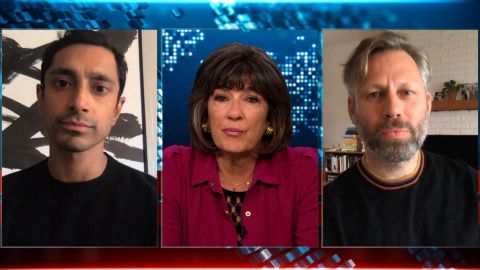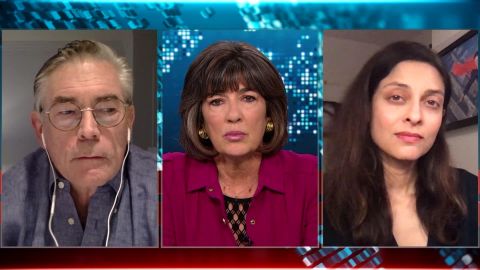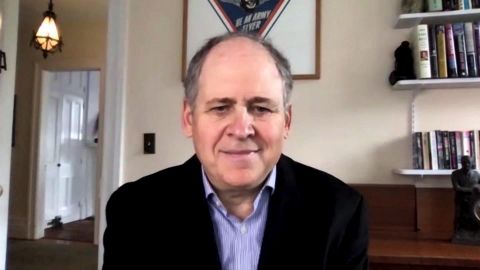Read Transcript EXPAND
DEVI SRIDHAR, UNIVERSITY OF EDINBURGH: Well, I think this is quite an exciting move forward. This is a vaccine that has gone through phase one, phase two, and now phase three trials, has a trial with 40,000 people, and looks to actually stop severe COVID-19 and stop deaths. And so I think right now time is of the essence, because Britain is still facing hundreds of deaths a day. And so trying to roll it out to the most vulnerable groups is the imperative right now.
CHRISTIANE AMANPOUR: So, what does — this authorization is called temporary authorization. What does that mean for this particular vaccine? We have just heard the prime minister say tens of millions of doses have been ordered.
SRIDHAR: Yes, so one of the interesting things throughout this COVID-19 crisis is the front-loading of manufacturing of ordering of doses, so that, when the science was ready to go and said it was safe and effective, that the doses would be ready to go. So, in Britain, for example, in the next week, they’re planning to start actually putting it into people’s arms and start deploying it. But we’re going to be monitoring that in real time to see actually — it’s not going to be like you just do it and leave it. There’s going to be studies to make sure at every point that any adverse events are recorded, that people are followed up on, and that we’re actually doing research in real time.
AMANPOUR: Let me just ask you, Donald McNeil, because there was something of a race, I guess, a race to this moonshot. And it looks like the U.K. has got there before the USA. How is that going down in the U.S.? And will that cause a sort of accelerated authorization from the FDA? How do you see it playing out in the United States over the next several days?
DONALD G. MCNEIL JR., “THE NEW YORK TIMES”: I don’t know what it will cause. I know there’s certainly a lot more talk about, gee, the Brits have approved this before we have. I mean, the truth is, the good news about the vaccine already came out a few weeks ago, and there’s been a fair amount of reaction to it. And it’s changed people’s views of vaccines. So, I think this may end up being a race between the United States and the U.K. to get the first doses that are coming out of the factories. I think there’s at least two factories are coming out of. I get a little mixed up about which is which. But, yes, there’s going to be a competition for getting what’s now a very scarce resource. And that will probably happen again with the Moderna vaccine, although I don’t know what the U.K.’s role with them is, and again with the Oxford vaccine once that’s approved. So, I imagine there’s going to be a lot of racing get — by the major nations who put up money to get their hands on the first doses.
About This Episode EXPAND
Christiane speaks with Donald G. McNeil and Devi Sridhar about Britain’s approach to the COVID-19 vaccine. She also speaks with Riz Ahmen and Darius Marder about their new film “Sound of Metal.” Walter Isaacson speaks with Jonathan Alter about his new biography of Jimmy Carter.
LEARN MORE


